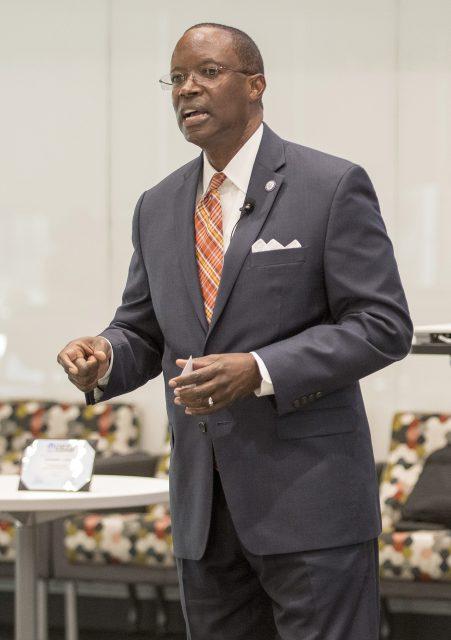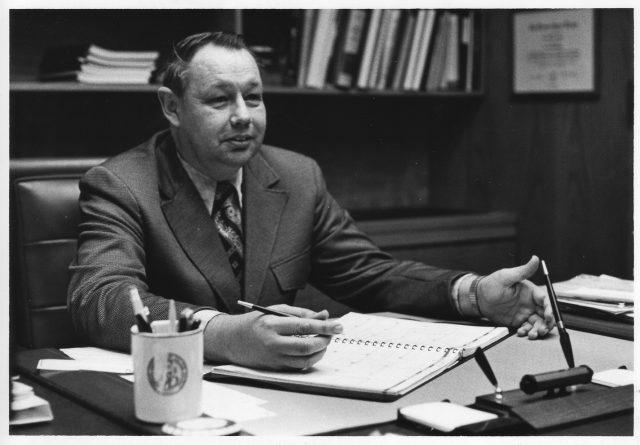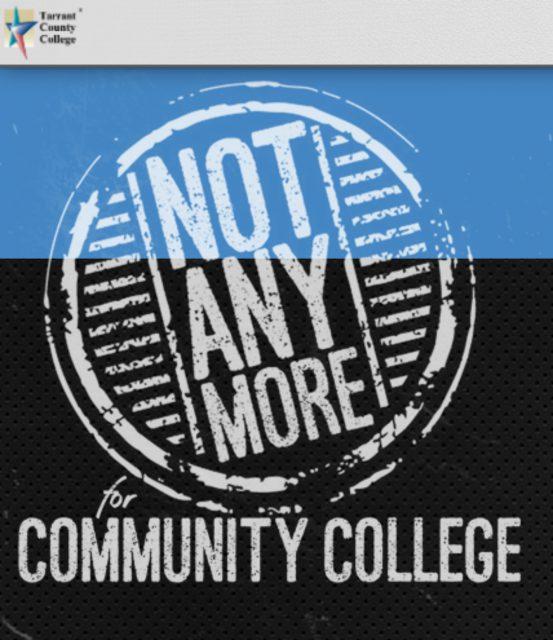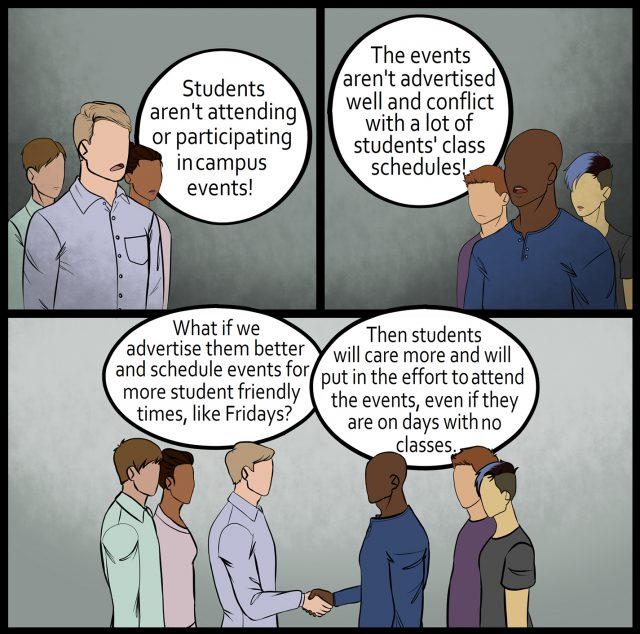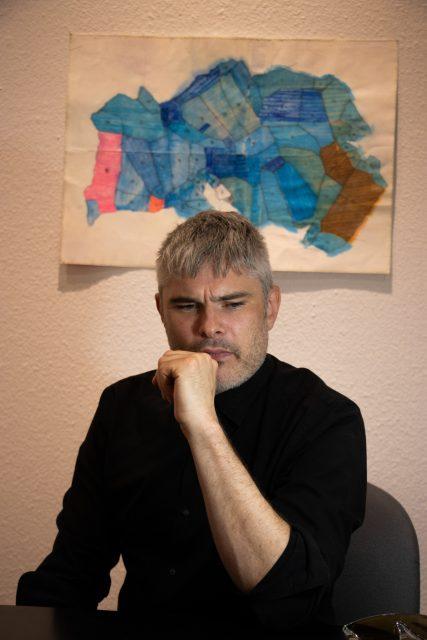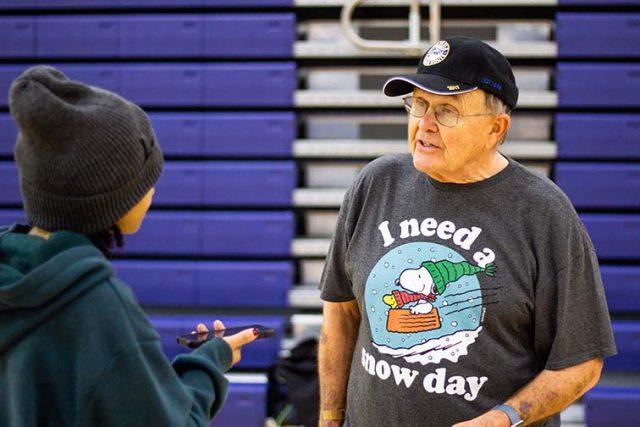By Jamil Oakford/managing editor
Black History Month
First in a series highlighting black leaders at TCC
Race and roadblocks shouldn’t deter one from reaching their goals. To learn from those obstacles and persevere is the motto the South Campus president lives by.
Perseverance is a recurring theme for Peter Jordan. Without perseverance, he said, he wouldn’t have achieved the goals he set for himself.
“I don’t think of my journey as one with roadblocks and detours and so forth because I take those things for granted,” he said. “I assume that there are going to be obstacles and roadblocks like any other journey.”
Jordan said he sees it as his job to find ways around those obstacles and to not let it negatively impact his efforts.
“It takes perseverance to do just that,” he said.
Born in Barbados, Jordan immigrated to the U.S. when he was a teenager. His family moved to New York City’s Harlem neighborhood. There, his family members worked as taxi drivers, hotel busboys and domestic workers or seamstresses, which were all honorable, he said. But he wanted something different for his life.
He began to realize he wanted to go into teaching.
“No one in my family really had ever gone to college,” Jordan said. “I knew it cost more than what my parents could afford.”
It didn’t take Jordan long to realize college would be one of the most important steps in reaching his goal, he said. The only problem was he never thought it was feasible.
Only when a high school counselor sat him down and discussed the possibility of scholarships and federal aid did he become hopeful.
Still, he got mixed reactions from his family.
“Especially the men in my family like my dad and my uncle, the response was, ‘Boy, no one gives you something for nothing. Who do you think is going to pay you to go to college?’” Jordan said.
When his mother heard for herself of all the opportunities for scholarships and financial aid, she was sold, he said.
Jordan went on to achieve his undergraduate and master’s degree at the Polytechnic Institute at New York University but felt proudest when he received his doctorate degree at the University of Pennsylvania.
“It was in college that I became more committed to education and so forth,” he said.
When he began earning more than his parents earned, he realized he was a part of something unique, Jordan said. This feeling stuck with him.
“I need to share with others, that I wanted others to experience, which is what I’ve been striving to do in every job or position I’ve had in higher education,” he said.
Being a TCC campus president has only reinforced this lifelong goal for him, Jordan said.
Larry Rideaux, student development services vice president, said his commitment to students, faculty and staff can be seen every day.
“I think the one thing that I admire about Dr. Jordan is he comes to work with his game face,” he said. “He has a gift for seeing things holistically.”
Personally, he respects Jordan’s dedication to the people around him achieving their goals.
“He’s one of the strongest student supporters we have,” Rideaux said. “If a student has an individual need, he will go the distance to help.”
While race can be seen as a hindrance or a roadblock, Jordan said he has never felt like race has played a negative role in his life. He said if race played into him being denied a job opportunity, he wouldn’t have known it.
“I’ve never had a job interview where I didn’t get the job and I thought, ‘It’s because I’m black,’” Jordan said. “I always think in terms of what could I have done differently.”
Perseverance makes him view that lost job opportunity as a way to evaluate what worked and didn’t work in that given situation, he said.
“If it’s something within my power that’s not asking me to be something or someone different from who I am, then it’s within my control and I’m interested in working to manage that or change that,” he said.
Jordan said it doesn’t help to fixate on those who have misperceptions based in race. The best thing one can do is focus on what one can control.
“You need to think about your life as a journey,” he said. “How you plan for that journey, how you handle the obstacles, the detours, the barriers that you come to along that journey is entirely up to you.”






















